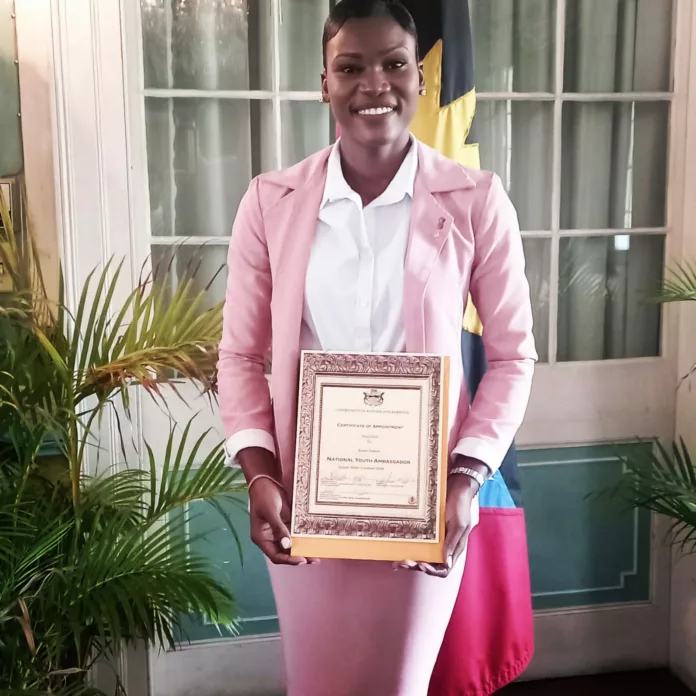We’ve all seen the headlines of people making life-changing decisions due to stressful relationships, financial woes, social media plights, and a barrage of contemporary challenges. Whatever the gripe may be, the reaction may be regrettable by the young and old alike. Hence the urgent need to prioritise the development of life skills in all spheres—from the home, to the classroom, to the jobsite.
And that’s the focus of National Youth Ambassador, Janet Simon. She believes that life skills such as conflict resolution, problem-solving and stress management are effective in driving youth engagement and empowerment as well as fighting many social ills. Referencing the United Nations Children’s Fund (UNICEF), Ambassador Simon declared that life skills provide youth with the necessary tools that enable them to appropriately handle their emotions, navigate the challenges and demands of everyday life, and make informed decisions. These psychosocial competencies are essential for personal well-being, social interaction, and success in various domains.
The responsibilities of a youth ambassador, according to Simon, “aid in inciting realistic and measurable change in society”. So, too, is the role of an educator. Presently, Simon is employed at the Greenbay Primary School. Having worked almost seven years in the education system, Simon believes that her profession positions her “to identify social ills amongst our youth and also identify areas where there is a need for education and development among them”.
She pointed out that mental health issues, violence, drug use and abuse are major challenges youth face. Simon said that she will be advocating for more appropriate recreational and character-building activities, as well as career guidance school tours.
Life skills are essential for career development and employability. They enhance job-related skills, professionalism, adaptability, and the ability to work in diverse environments. Life skills also empower young people to develop personal responsibility and a positive self-image as they build self-confidence and cultivate a sense of purpose.
Also high on Simon’s agenda are plans to conduct a Healthy Eating and Hygiene drive which will engage young people in making better food choices to maximise quality of life.
Prior to becoming a National Youth Ambassador, Simon independently visited schools across the island, speaking to students about the importance of conflict resolution strategies, communication, and time management skills.
“It is my hope to continue this tour in the upcoming school year,” she said. “Very often, we speak to youth about outcomes we wish for them to attain, but neglect to provide them with the necessary systems to ensure that they successfully attain these outcomes,” Simon added.
To ensure that youth embrace desired life skills, Ambassador Simon said that she plans to collaborate with Crossroads, National Cadet Corps, Medical Benefits Scheme, Sir Lester Bird Medical Centre, and other stakeholders who can play a vital role in cultivating mentally resilient youth and alleviating social problems. It is also Simon’s desire to reinstitute prosocial programmes in schools like Breaking the Cycle and Drug Abuse Resistance Education (DARE).
While it is important to acknowledge the challenges faced by young people who lack life skills, it’s essential to approach such stories with sensitivity. Here’s an example that illustrates the potential consequences of a lack of certain life skills: Sarah was a bright and talented teenager who excelled academically. However, she struggled with communication and interpersonal skills. She found it challenging to express her thoughts and emotions and had difficulty forming meaningful connections with her peers.
As Sarah entered college, her poor communication skills became a barrier to her social and academic success. She found it challenging to participate in group discussions, make friends, and seek help when needed. She often felt isolated and overwhelmed by the demands of college life.
Without adequate problem-solving and decision-making skills, Sarah struggled to manage her time effectively. She frequently procrastinated, leading to missed deadlines and poor grades. She felt overwhelmed by the pressure and lacked the ability to break down tasks into manageable steps. Sarah’s lack of emotional intelligence also took a toll on her mental well-being. She struggled to cope with stress, handle criticism, and build resilience. As a result, she experienced anxiety and low self-esteem, which further hindered her ability to thrive in various aspects of her life.
Despite her academic potential, Sarah’s lack of life skills hindered her personal and professional growth. She missed out on valuable opportunities for personal development, networking, and career advancement. She felt unprepared for the challenges of adulthood and lacked the confidence to pursue her goals.
Sarah’s story highlights the importance of developing life skills early on, as they are integral to navigating the complexities of life, building relationships, and achieving personal and professional success. It serves as a reminder of the potential consequences that may arise when young people do not have the necessary skills to face life’s challenges. Overall, developing life skills in youth is crucial for their holistic development, as National Youth Ambassador Janet Simon emphasised that life skills empower young people to make meaningful contributions to society and lead fulfilling lives.


